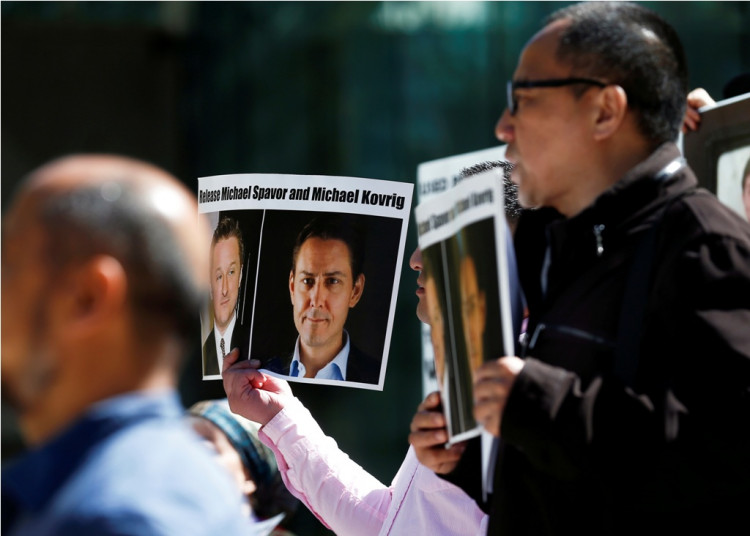Michael Kovrig's court hearing early this week ended with no result.
Experts believe the release of Kovrig and Michael Spavor could depend on diplomatic communications.
Following Spavor's speedy trial late last week, Kovrig's trial Monday in Beijing lasted for a day. Diplomats from 26 countries stood outside the Beijing No. 2 Intermediate Court to support the Canadians.
While China courts usually have around a 99% conviction rate based on past trials, experts believe Kovrig and Spavor's verdicts will depend on how the countries involved manage diplomatic conversations.
Spectators say the U.S. is indirectly involved owing to its warrant request that Canada arrest Huawei Technologies, Inc. chief financial officer Meng Wanzhou.
The Canada government has repeatedly condemned the detention of Kovrig and Spavor, who were arrested 10 days after Meng was taken into custody in Vancouver early in December 2018.
Canada and China have since seen diplomatic relations deteriorate as the former accused the latter of the two Michaels' "arbitrary detention." China has denied the accusations.
Canada diplomats were barred Monday from entering the court, along with 28 representatives from countries that showed support for the call to release Kovrig and Spavor. A court official said the trial was a "national security case."
Canada's chief of mission in Beijing, Jim Nickel, is concerned about the lack of transparency in the court hearings of Kovrig and Spavor.
Canada Prime Minister Justin Trudeau echoed Nickel's sentiments, stating that the closed-door trial was "completely unacceptable." Trudeau has said in the past that he will not consider trading the two Michaels for the release of Meng.
Kovrig and Spavor have been accused of stealing state secrets and sharing them overseas, while Meng was accused of having misled HSBC on Huawei's dealings with a subsidiary that could have violated U.S. sanctions on Iran.
Some observers have suggested that Kovrig and Spavor were being used as pawns in the geopolitical war that China and the U.S. have been engaged in for years.
Vina Nadjibulla, the wife of Kovrig, said that her husband and Spavor "are innocent Canadians caught up in a bigger geopolitical dispute."
China has referred to Meng as a "hostage" in Canada and also indicated that the White House had been targeting Chinese tech company Huawei with unfair treatment.
Former U.S. president Donald Trump launched a crackdown on Chinese tech companies in May 2019, particularly banning Huawei from doing business with American firms.
Huawei was also placed on the U.S. entity blacklist due to alleged national security related matters. The company has repeatedly denied Trump administration allegations.





